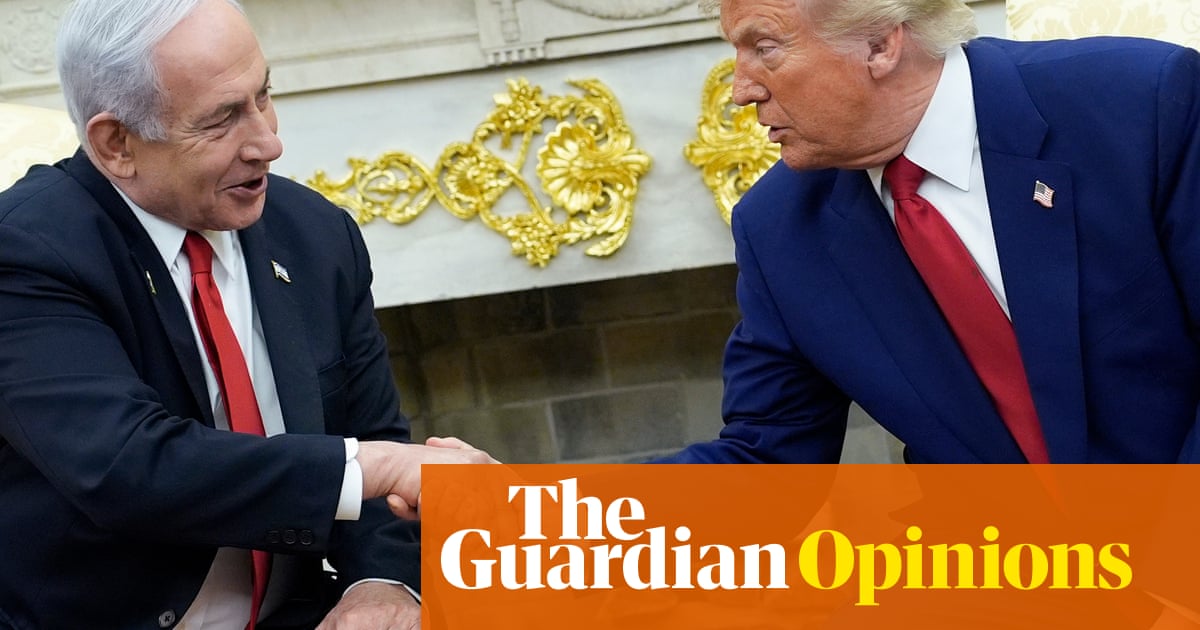As Donald Trump hops from one Gulf capital to another, signs someeye-catching deals, meets thenew Syrian presidentand even supposedly makes progress on theIran nuclear issue, it looks like the war in Gaza has been pushed on to the sidelines of US diplomacy. While there were negotiations involving the Americans this week in Qatar over therelease of hostages, Israel also saw fit to conduct a devastating assassination attempt on Hamas’s leader, Mohammed Sinwar, followed by intensive airstrikes across the strip. While Sinwar’s fate has not yet been confirmed, it is telling that this all took place while the US president was in the region: it reveals how unserious the Israeli government is about ending the war.
The truth is that if the war is resumed in earnest, it will be unsurprising because, earlier this month, the Israeli security cabinet unanimously approved a plan toexpand its military offensive in the Gaza Strip(with the caveat of waiting until the US president’s Middle East trip was over). The new Israeli military plan, agreed under immense pressure by the most extreme rightwing members of the coalition, goes beyond “defeating Hamas” and expresses little interest in the fate of the remaining hostages. Instead, it aims toindefinitely occupy the entire territory.
While Netanyahu tries to sugarcoat the true intentions of the next phase of the war with security reasoning and false humanitarian arguments that Gaza’s population will be moved“for its protection”, the finance minister, Bezalel Smotrich, a rightwing messianic settler, gave the game away. Smotrich suggested that within half a year, the population of Gaza would be confined to just a narrow swath of land, with the remainder of the territory“totally destroyed”; as a result, they will be “looking for relocation to begin a new life in other places”. In other words, the plan is forced displacement.
In the past when these political elements were on the margins of Israeli society and politics, calls of this nature, which amount to war crimes, could be dismissed as no more than far-right demagoguery. This is no longer the case when those who represent these abhorrent ideas occupy key positions in the cabinet. Worse, the Israeli prime minister is totally dependent on them to remain in power until the next election – and thereby also enable him to do his best to derail his corruption trial, especially as it is reaching the enormously unpleasant stage where he will be cross-examined by the prosecution.
Netanyahu is giving the ultra-right what they want because he can’t afford a fresh general election (which most Israelis crave), let alone the prospect of an independent commission of inquiry into the colossal failure to avert the 7 October Hamas massacre. More than two-thirds of Israelisprioritise securing a deal with Hamasthat would see the return of the hostages over continuing the war, while opinion polls suggest that should a general election be held today the coalition parties would be sent to the opposition benches. Hence, he feels compelled to stick with the coalition he has, and cave into their demands, destructive and criminal as they are.
The price of Netanyahu’s desperation to hold on to power at any cost is paid first and foremost by the Palestinians. But it is also being paid by his own people. Israel has already been blocking the entry of humanitarian aid into Gaza for weeks, and aid organisations are constantly warning of starvation, lack of medical help, especially as hospitals are being bombed, and diminishing access to clean water and sanitation. The former Israeli prime minister Ehud Olmert described the situation this week as “totally intolerable, unacceptable, unbearable and unforgivable. It should be stopped right away.”
It is for the international community to rise to the challenge of ensuring that Israel will not translate the recent cabinet’s decision to expand the war into a new reality. The Israel Defense Forces have already mobilised tens of thousands of soldiers prepared to enter into a devastated Gaza, with its traumatised population. If the international community won’t make use of its levers of influence to prevent the return of a full-scale war – and if Trump decides not to flex his muscles, as he did on the eve of his inauguration – it will be complicit in further bloodshed, displacement and dispossession of the Palestinians in Gaza. Possibly on an even worse scale than before.
Yossi Mekelberg is professor of international relations and associate fellow of the Middle East and North Africa programme at Chatham House
